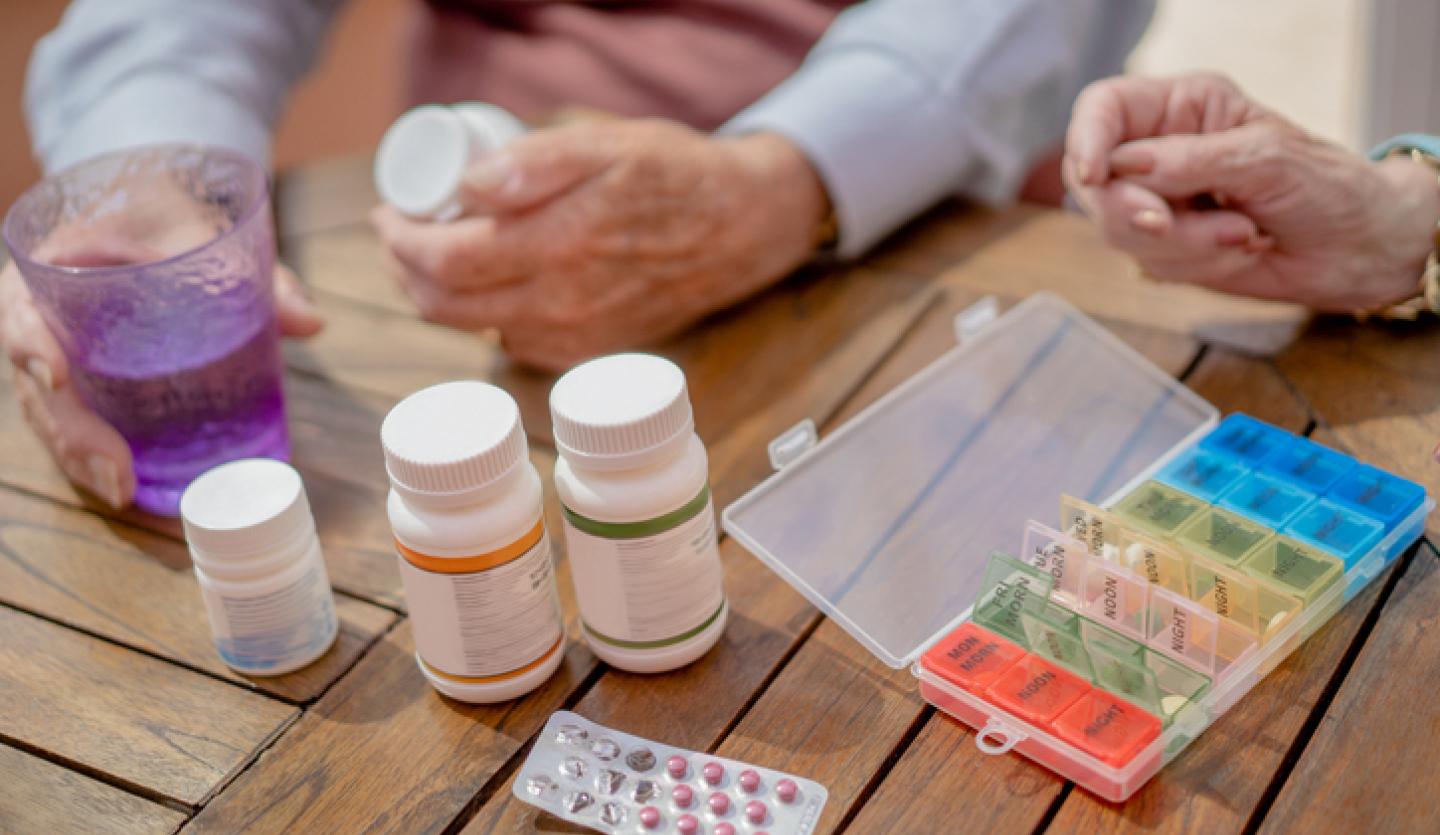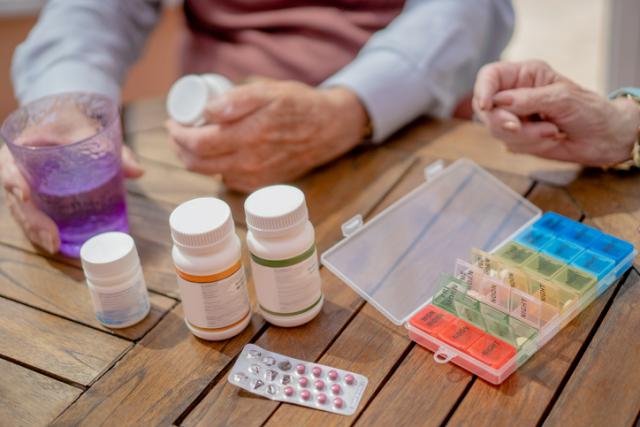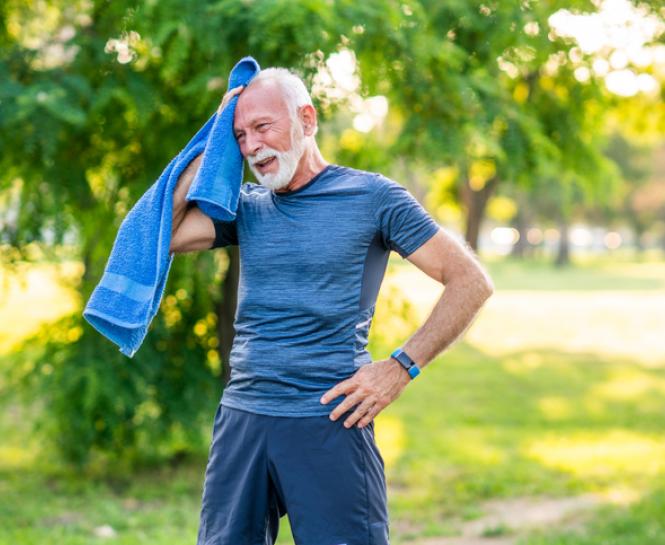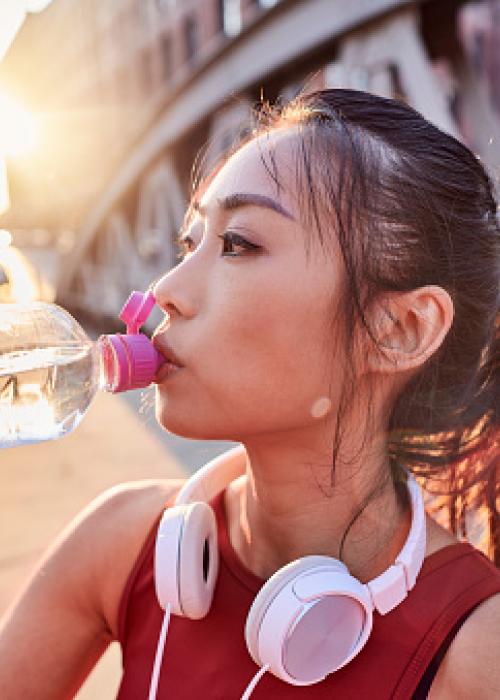Heat intolerance is more than feeling uncomfortably warm. A potentially serious medical condition, heat intolerance can cause long-lasting health problems if you ignore the warning signs.
When your body cannot regulate its temperature, it can damage your brain and other vital organs. But you can take steps to protect yourself. To ensure you’re protected from the sun’s ultraviolet rays, you probably know to check the sun protection factor (SPF) rating of your sunscreen. But do you also check your regular medications to see if they can cause a heat-related reaction? You should. Here’s why.
How do heat and sun interact with my medication?
Some prescription drugs and over-the-counter (OTC) medications interact badly with high temperatures. The results can include nausea, excessive sweating, skin rash, swelling and other heat-related medical conditions.
Other medications contain ingredients that can lead to sunburn-like symptoms such as rash and swelling. These medicines may also cause a reaction that makes you extra sensitive to the sun.
Talk to your physician if you are taking any of the following medications to determine if they can increase your sensitivity to heat and sunlight and, if so, what you can do to minimize your risk.
Antibiotics and acne medication
Acne medication that contains salicylic acid can cause an itchy, painful rash if you are out in the heat and sun. Other medicines, including the antibiotic doxycycline, may make you more susceptible to sunburn, blistering and hyperpigmentation (sunspots) from the sun.
Antidepressants and psychiatric medication
Some antidepressants and psychiatric medications, such as amitriptyline, chlorpromazine and levodopa, affect your hypothalamus, the part of your brain controlling thirst, hunger and body temperature. Without that control, you become more sensitive to heat and lose your body’s ability to cool down once you start to overheat.
Blood pressure and heart medication
Some blood pressure medications can increase the likelihood you will experience heat intolerance, including:
- ACE inhibitors, such as amlodipine and benazepril, are often used to treat heart disease.
- Beta-blockers, such as propranolol and metoprolol, reduce the blood flow to your skin. This restriction decreases your body’s ability to cool itself.
- Thiazide diuretics, also known as water pills, remove fluid through your kidneys to control blood pressure and other medical conditions. They can also cause excessive urination and dehydration.
Cold and allergy medications
Antihistamines, such as diphenhydramine, help stop the sneezing and sniffing of seasonal allergies. But they can also prevent you from sweating. When you cannot sweat, your body cannot regulate its temperature.
Like beta-blockers, decongestants such as pseudoephedrine decrease the blood flow to your skin, which causes heat intolerance and heat-related illness.
Overactive bladder medication
If you have an overactive bladder, anticholinergics can block the muscle movements that make it feel like you have to urinate. But it can also reduce sweating and raise your body temperature.
What are the warning signs of heat intolerance?
The most common symptom of heat intolerance is feeling uncomfortable and hot. Other warning signs include:
- Cramps
- Dizziness
- Flushed skin
- Headache
- Heavy sweating or lack of sweating
- Nausea or vomiting
- Weakness
What Should I Know About Heat Intolerance?
Can heat-related illnesses be prevented?
Use these tips from the Centers for Disease Control and Prevention (CDC) to help prevent the effects of heat from putting a damper on your warm-weather fun.
Stay cool. On extremely hot days, it is best to stay in an air-conditioned place. If your home does not have A/C, go to a public library or shopping mall for a few hours. Limit outdoor activities to the cooler times of the day and find a shady spot to rest frequently to help boost your body’s ability to cool down.
Stay hydrated. Drink plenty of fluids even when you are not particularly active. Drink fluids throughout the day. Be sure to drink when you are thirsty. Avoid icy cold drinks so you do not get stomach cramps. Also, avoid alcohol and super-sugary beverages that may speed up dehydration.
Stay informed. Be aware of any extreme heat alerts for your area. Know the signs of heat-related illness and take steps to protect yourself when they occur.
Find care at Catholic Health
The long, sunny days of summertime can be the perfect time to get outside and shake off the cold days of winter. But be sure to take steps to protect your health. Talk to your physician to determine if your medications increase your chances of heat intolerance.
Call 866-MY-LI-DOC (866-695-4362) to find a Catholic Health physician near you.







